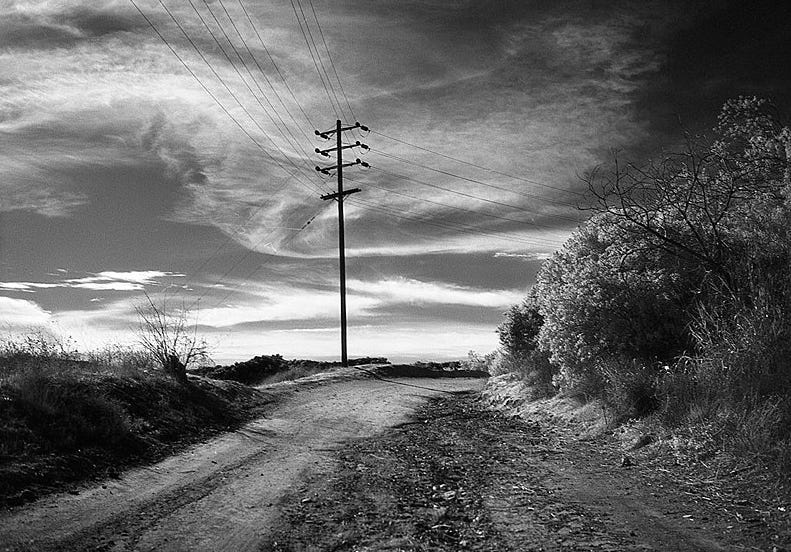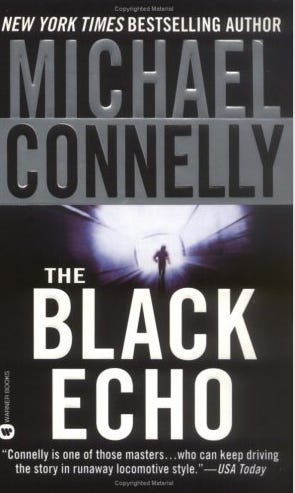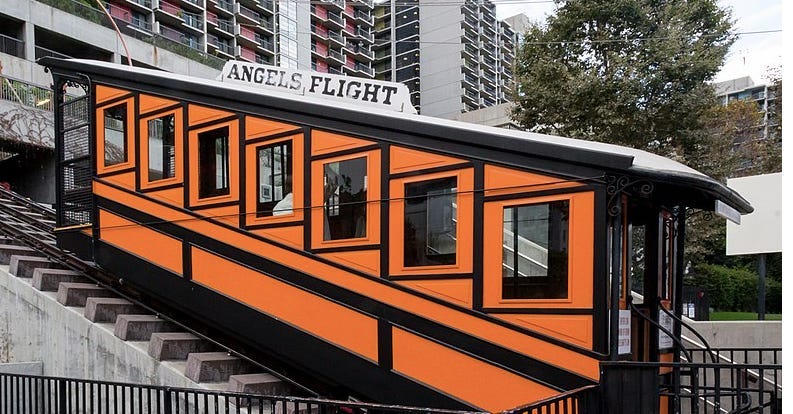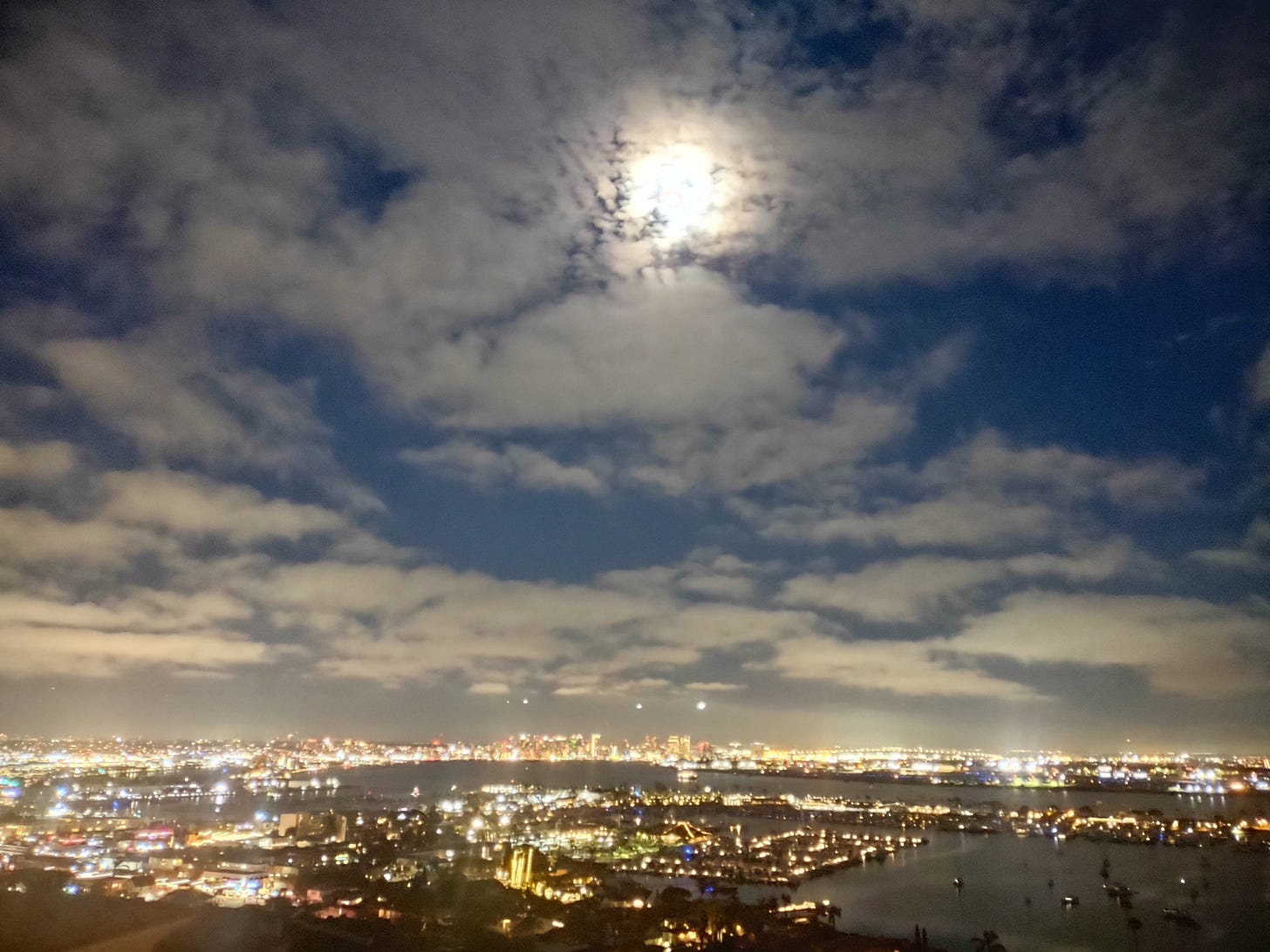Before we begin…
How have books helped you get to know a part of the world, a place, more deeply? What books have led you to travel to a part of the world you didn’t know, or even re-introduced you to the place you call home?
Welcome! You’ve reached Spark. Learn more here or just read on. If you received this from a friend, please join us by subscribing. It’s free! All you have to do is press the button below. If you have already subscribed, welcome back! If you see something you like, please hit that heart so others can find us more easily. And if this email is truncated in your inbox, just click the headline above to come on through and read everything all at once.
Traveling page by page
This post is an updated version of one that appeared a couple of years ago when we had far fewer subscribers. I got thinking about the books I reached for when I traveled but also when I wanted to know any place – even home – a little better. Enjoy!
People are on the move all around me. One friend will be heading to England this week. Another will go to Iceland in July. My son, the stranger, recently returned from a week in Honduras. Perhaps you, as I type these words, are packing or are on your way somewhere. If so, here’s my questions: what books are you reading or bringing? I’m not talking about travel guides – although I very much appreciate them. I’m talking about the novels, the memoirs, the nonfiction accounts or histories that rise from your native soil.
I’ve been thinking about an article that was shared with me a while back. It was a list of the first several books of a 20-book reading list that Malcolm Gladwell put together to read before taking an extended trip through the South. When he knew he was going to take the trip, he wanted to do more than just pack, he wanted to absorb some of the essence of the places through which he’d pass, prepare his mind and senses to receive knowledge, scents, sounds, culture as he made his way along the route he’d mapped out.
I thought instantly of Valentine’s weekend 1998 when my not-yet-mate wooed me with a last-minute flight from snowy New Jersey to his hometown, Los Angeles. We saw two Lakers Games and wolfed down two romantic dinners at In-N-Out Burger. But the city didn’t make a dent in my consciousness until we drove the long snaky turns of Mulholland Drive and side trips downtown that took us past landmarks from the novels of Michael Connelly and Robert Crais, novels we’d read together for fun, escape.

When we passed a house clinging to the side of the canyon, overlooking the freeway, I saw Connelly’s iconic character Harry Bosch inside. As we approached the place where a body had been found in a drainage tunnel off Mulholland, I had a reference that would never appear on a map. Seeing the more well-known landmarks – Parker Center, the Police Academy, and Angel’s Flight created coordinates that helped me begin to map out the city for myself.
Until that moment, I’d thought of LA as an enormous, distant, wind-scorched, jaded but glittery city. There were the hissing summer lawns and paved parking lots of Joni Mitchell, the images of movie stars, earthquakes, fires, riots, and crime that filled the news. All of it was interesting but irrelevant to me. I was an East Coast person. End of story. Even the flight out that Valentine’s Day weekend in 1998 felt like a fun exotic trip to a place I didn’t really have to know or take seriously. I didn’t realize my husband intended for it to be my introduction to his home, history, and, it turns out, the place to which he very much wanted to return - with me. It worked, sort of. But that’s another story.
When you grow up in a place, a book set there can reel you in. My husband couldn’t fly back to LA every weekend of the long years he spent in New Jersey but I think now that those Michael Connelley and Robert Crais novels were places he could live for a while in the part of the world he grew up in and to this day considers home. By introducing them to me, he was offering me not just an escape route but a way into his experiences, his history. As we drove the boulevards and streets that Connelley’s Harry Bosch traveled, we found ourselves moving from Harry Bosch’s stories to my husband’s.
Something shifted inside me. The LA I’d imagined from a distance became more real, a bit more approachable. The books I’d read simply for distraction and winter entertainment had opened me to the city and, traveling through it, I felt a sense of recognition and connection that excited me and made me want to know more.
Since then, I’ve made it a point to seek out books to read before traveling. Unlike Gladwell, my strong preference is for fiction first, then nonfiction. I’ve never developed a list of 20 books to read before a trip – I’m lucky if I get to two or three. One invariably makes it into my suitcase and becomes a kind of map that I can refer to throughout the trip. I note the moments when I feel that shift, that spark of recognition and connection. For those few moments, I feel less like a stranger. A character’s or author’s place has become, in some small way, at least for a little while, mine too.
If you like what you see or it resonates with you, please take a minute to click the heart ❤️ below - it helps more folks to find us!
A podcast all about “A Strong Sense of Place”
I learned about this terrific podcast from fellow #bookstacker
when she interviewed its founders, a couple who understands the place of, well, place in a book. Here is how Melissa Joulwan and Dave Humprheys summarize their shows:“We get curious about one destination and discuss what makes it different than every other place on Earth. Then we share recommendations for great books — novels, nonfiction, graphic novels, short stories, and more — that took us there on the page.”
The first five seasons are available anytime wherever you get your podcasts. The most recent season included Sri Lanka, Maine, New Orleans, Spain, London, Kenya and more. Be sure to check out the Lebanon podcast which includes their sport-on review of Rabih Alameddine’s The Hakawati, one of my favorite books from one of my favorite authors.
Books that have helped me travel
Here, in no particular order, is a sampling of fiction I’ve read before a few trips I’ve been lucky enough to take. Keep them in mind if you are heading to any of these locations at some point in your post-Covid future – or better yet, let me know your picks for these or any other location.
Venice, Italy: Any of the Commissario Guido Brunetti books by Donna Leone but why not begin with the first one: Death at La Fenice. The city is a character in and of itself in these books. You can feel the beauty, the history and the struggle to preserve both running throughout.
Marseille, France: Marseille Noir, a great collection of short stories in the Noir tradition - love, darkness, betrayal, grit, glitter. It’s all here and it added an unexpected dimension to the one day I was able to spend in the city.
Languedoc, France: In Another Life by
. I read this novel way before a trip to the south of France but it was right there in my memory when we found ourselves spending a few hours walking through the castle of Carcassonne. Johnson wove the history of the Cathars and the region through her story so skillfully I didn’t realize how much she’d left me with until I got to see one of the places she includes in the story.Buenos Aires: Cronopios and Famas by Julio Cortàzar and translated by Paul Blackburn, Jorge Luis Borges: Collected Fictions translated by Andrew Hurley. I bought these before I went to Buenos Aires. I’m not sure they prepared me at all for the visit to the city but they woke me to two writers I needed to spend more time with. I still do.
Your turn: what books have been your travel guides and companions?
Lines that linger: let’s play
A while back I was a happy follower of and occasional contributor to David Abrams’ #SundaySentence. It was one of the few things that drew me to Twitter regularly. I loved it because a good sentence led to fun thoughts and, often, a good book.
The hashtag persists thanks to writers like
and others. I am not on Twitter any more and am not sure where the #SundaySentence lives these days. I still, however, underline sentences that leap out at me and if I am on top of my game, they go into my common book. Recently, I found myself looking over my growing collection of lines that linger and I discovered that they begin to talk to one another in unexpected ways. These two, for example:"And it may be that love sometimes occurs without pain or misery." - E. Annie Proulx, The Shipping News
"What you deserve and what you can stand aren't necessarily the same thing." - Kelly Link, Get in Trouble
Let’s play. Share a sentence from anything you’ve read this week along with the source. No need to add any context, the fun part is getting to see how it impacts others.
Welcome New Subscribers!
If you’ve just subscribed, thank you so much for being here. If you would like to check out past issues, here’s a quick link to the archives. Be sure to check out our Resources for Readers and Writers too where you will find links for readers, book clubs, writers, and writing groups. And if you’d like to browse for your next read, don’t forget to check out books by authors in our community at the Spark Author Page which will be updated with new names and books for next week’s issue. Another great source: the many wonderful reviews you’ll find among the #Bookstackers.
The more the merrier! Please share with your friends and invite them to join us!
Ways to show you like what’s happening here
We don’t do paywalls here but we do work hard so if you’d like to show your support for Spark, here are some ways to do that:
Consider a paid subscription ($5/month or $35/year) or use this as a link that will allow single contributions of any amount via PayPal.
There will be no paywalls. All subscribers will still have access to every post, archives, comments section, etc.
If finances are an issue (and when are they not?), you can still show your support for Spark by participating in our conversations, “liking” a post by hitting that heart, and by sharing Spark among your friends. All of these things help bring new subscribers into the fold and every time we expand our audience, the conversation grows and deepens. Click below for more info.
Let me know how you are and what you’re reading. If there’s an idea, book, or question you’d like to see in an upcoming issue of Spark, let us know! Use the comment button below or just hit reply to this email and send your message directly.
And remember, If you like what you see or it resonates with you, please take a minute to click the heart ❤️ below - it helps more folks to find us!
Ciao for now!
Gratefully yours,
Betsy
P.S. And now, your moment of Zen…the moon, the lights, the San Diego night
Why do cities at night look so much more alive and, often, more beautiful than they do during the day?
Calling for Your Contribution to “Moment of Zen”:
What is YOUR moment of Zen? Send me your photos, a video, a drawing, a song, a poem, or anything with a visual that moved you, thrilled you, calmed you. Or just cracked you up. This feature is wide open for your own personal interpretation.
Come on, go through your photos, your memories or just keep your eyes and ears to the ground and then share. Send your photos/links, etc. to me by replying to this email or simply by sending to: elizabethmarro@substack.com. The main guidelines are probably already obvious: don’t hurt anyone -- don’t send anything that violates the privacy of someone you love or even someone you hate, don’t send anything divisive, or aimed at disparaging others. Our Zen moments are to help us connect, to bond, to learn, to wonder, to share -- to escape the world for a little bit and return refreshed.
I can’t wait to see what you send!
And remember, if you like what you see or it resonates with you, please share Spark with a friend and take a minute to click the heart ❤️ below - it helps more folks to find us!








I love Scotland, including its rich literary tradition--Robert Louis Stevenson, Sir Walter Scott, Robert Burns, et. al. For a taste of the real Scotland in more recent times, I recommend, first, three novels by Lewis Grassic Gibbon, written between 1932 and 1934: "Sunset Song," "Cloud Howe," and "Gray Granite." Together they trace the story of the indomitable heroine,, Chris Guthre, from her early marriage to a youth who would fight in WWI, to her old age, alone, all played out against a backdrop of Scottish history and culture. "Sunset Song" has often been called the best Scottish novel of the 20th Century. Other wonderful reads: "Blood Hunt," by Neil M. Gunn, a murder story exploring the traditions and values of the Highlands; and, for something lighter, "Whisky Galore," by Compton MacKenzie, set in a fictional island in the Hebrides, about the effects of a shortage of single malt on the inhabitants of that place during WWII. (This volume comes complete with a brief glossary of Gaelic expressions.) For the dark side of Edinburgh, read any of the Inspector Rebus mysteries by Ian Rankin. p.s. for California in the 1960's, read Joan Didion's essay collection "Slouching Toward Bethlehem."
I love reading about places, always have. I still want to go to Antarctica because of My Last Continent by Midge Raymond.
As to this week's sentence, it is from Angeline by Anna Quinn, an unusual novel set in the PNW, where I am right now, not far from the (currently rainy) Puget Sound.
"Dark clouds gather above, clutching rain and casting dark shadows across the rippled sand."